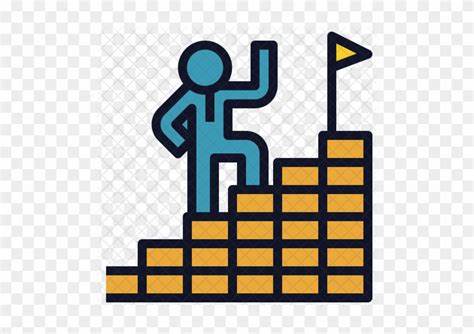1. Introduction
In today’s competitive world, just getting academic marks and degrees cannot guarantee you success. Our education system majorly focuses on syllabus and exams, but to be successful in the real world, students need to develop skills other than academics that prepare them for practical challenges. College life is an ideal phase in which we can learn some essential life skills along with our academics that take us closer to success in our career and personal life.
Many times, students think that just by studying and getting good marks their future will be secure, but the reality is that today’s employers and real-life challenges do not consider them ready unless they have some core skills. As Elon Musk once told at the World Government Summit in 2017. He said that during the interview, I ask one question to almost all the candidates: “Tell me about some of the most difficult problems you worked on and how you solved them.” This makes us understand that Elon Musk wanted to know about his problem-solving skills. So, there can be many examples of such skills like communication, time management, problem-solving, and adaptability, which are tools that help any student to move ahead from academics and make it easier to face the real world.
In this blog, we will talk about some such essential skills which every college student should develop so that they can live a balanced, confident and successful life. That is, along with a degree, you should also have those abilities which make you a professionally and socially successful individual. Come, let’s explore those skills which are absent from academics but are needed by every college student.
2. List of Essential Skills
Here are some important skills every college student should develop along with academics, so that they can confidently position themselves in today’s dynamic world.
A. Communication Skills
Why it is important: Clear communication allows you to effectively express your thoughts and ideas, which is very helpful in interviews, networking, and group projects.
How to develop it: Practice public speaking, listen actively, and write regularly to improve written communication.

Why it is important: College life requires balancing many activities and studies. Time management helps you stay productive and focused.
How to develop: Create schedules, prioritize tasks, and avoid procrastination.
C. Emotional Intelligence (EQ)
Why it is important: Understanding and managing your own and others’ emotions is important for relationships and teamwork.
How to develop it: Work on self-awareness, practice empathy, and show sensitivity in social interactions.

D. Critical Thinking and Problem Solving
Why it is important: Analyzing complex situations and finding solutions to them is very useful in practical life and jobs.
How to develop it: Develop the habit of looking at things from different perspectives, and brainstorming solutions to real-life problems.
E. Adaptability and Resilience
Why it is important: Adaptability is a very valuable skill in today’s fast-changing environment. Resilience helps you recover from setbacks.
How to Develop: Embrace new situations, and view failures as learning experiences.
F. Financial Literacy
Why it is important: A basic understanding of personal finance helps you manage a budget and avoid unnecessary debts. How to Develop: Learn the basics of budgeting and saving, and understand basic financial tools such as investments and credit.
G. Leadership and Teamwork
Why it is important: Good leadership and teamwork help you excel in effective collaboration, which is useful in both college and career.
How to Develop: Take the lead in group projects, respect the ideas of others, and focus on collaborative efforts.

H. Networking Skills
Why it is important: Start building a professional network in college itself which will help you for career opportunities and growth.
How to Develop: Attend events, build strong relationships with professors and peers, and develop a professional presence on social media.
I. Digital Literacy
Why it is important: An understanding of digital tools and online resources is very important in today’s tech-driven environment.
How to Develop: Practice basic software and online platforms and stay knowledgeable about digital privacy and security.
J. Self-Discipline and Motivation
Why it is important: Setting goals and consistently working towards them is the key to success, and for this self-discipline and motivation are important.
How to develop: Write down your goals, work on them regularly and motivate yourself to achieve them. All these skills complement your academic knowledge and help you lead a balanced and successful life
3. Why These Skills Matter
In today’s fast-paced and highly competitive world, focusing only on academics is not enough. For real-world success and personal satisfaction, we need to have some other essential skills apart from academics that help us lead a practical and balanced life.
A. For Career Growth and Opportunities
When you enter the industry, you are expected to have core skills like problem-solving, communication and teamwork. These skills are important not just in interviews but in every job role. They set you apart from your peers and open new avenues for career growth.
B. Personal Development and Confidence Building
Skills such as self-discipline, emotional intelligence and adaptability boost your personal growth and self-confidence. Your control over your emotions and decisions increases and you become a more composed and self-assured person.
C. Better Relationships and Networking
Skills such as communication and empathy help strengthen your relationships and professional network. Networking is very important for your career, and good communication skills help in this.

D. Stress Management and Work-Life Balance
Time management and resilience help you manage stress and balance your academics, personal time and extra-curricular activities. These skills help you avoid burnout and feeling overwhelmed.
E. Adaptability in a Changing World
Skills like adaptability and digital literacy are extremely valuable in today’s rapidly changing environment. Technology and market demands are constantly evolving, and if you can adjust to these changes, you are better positioned for long-term success.
F. Foundation for Life-long Learning
These skills help you become a lifelong learner. Learning never stops after college, and skills like self-motivation and critical thinking help you confidently handle new challenges and knowledge.
Possession of these skills makes you a holistic and resilient individual who can successfully adapt and excel in every field. It is important for today’s students to understand that along with marks and degrees, these skills are equally important in giving them long-term success and satisfaction.
4. How to Start
Developing skills is a gradual process, and college is a great opportunity to acquire these skills. Here are some practical ways to help you build these essential skills:
A. Set Small, Achievable Goals
Start with small goals. For example, if you want to improve time management, devote 15-20 minutes in your daily routine to productive tasks. Small achievements build motivation and confidence and create habits.
B. Take Part in Extracurricular Activities
Joining societies, or volunteer groups is one of the most effective ways to learn skills like communication, teamwork, and leadership. Extracurricular activities provide you with opportunities to practice and learn in real-world situations.
C. Find a Mentor or Role Model
Connecting with a mentor or role model allows you to share valuable insights and experiences with them. They provide guidance and support as you improve specific skills.
D. Focus on Self-Reflection and Feedback

Self-reflection helps you understand your strengths and weaknesses. Take some time each week to reflect on your performances and behaviors. Also, receiving feedback gives you an idea of which areas need improvement.
E. Enroll in Online Courses and Workshops
Many online platforms like Coursera, Udemy and LinkedIn provide courses to develop learning skills. Some courses on soft skills, digital literacy, or even personal development can be beneficial to your growth.
F. Practice Effective Communication Daily
Daily practice is essential to improve communication skills. Practice expressing your thoughts and ideas clearly, and also learn to develop active listening. Social interactions and presentations are effective tools for this.
G. Learn Time Management Techniques
Try some techniques for time management like Pomodoro Technique and Eisenhower Matrix. Through these techniques, you can prioritize your tasks and use your time effectively.
H. Work on Emotional Intelligence and Resilience
Participate in mindfulness exercises and stress management activities to build emotional intelligence and resilience. Meditation and journaling can also help you manage your emotions and retain your focus.
I. Network and Build Connections
Attend events, webinars, or college meet-ups for networking. Connecting with people in your field will give you industry insights and career guidance that will help you grow professionally and personally.
J. Keep a Growth Mindset
Keep a growth mindset and view every challenge as a learning opportunity. A growth mindset allows you to achieve your goals efficiently and maximize your potential.

With these small steps, you will gradually develop these essential skills that will give you an edge in your academic and professional life.
5. Conclusion
College life is not just a time to learn academic knowledge, it is also the foundation of your personal growth and future success. The skills we learn beyond academics not only shape our professional journey but also boost our personal development. Skills such as communication, time management, problem-solving, leadership, and emotional intelligence enrich our lives and give us the strength to confidently face real-world challenges.
College time is a unique opportunity to explore and enhance your skills. By implementing these skills in your daily life, you can make your future brighter and more successful. So start developing your skills, focus on your growth, and make your college journey a meaningful and fruitful experience.
Remember, the knowledge you gain in class is important, but the skills you develop outside the classroom are what will set you apart in the real world!




I like the efforts you have put in this, regards for all the great content.
I am truly thankful to the owner of this web site who has shared this fantastic piece of writing at at this place.
Good post! We will be linking to this particularly great post on our site. Keep up the great writing
I just like the helpful information you provide in your articles
I truly appreciate your technique of writing a blog. I added it to my bookmark site list and will